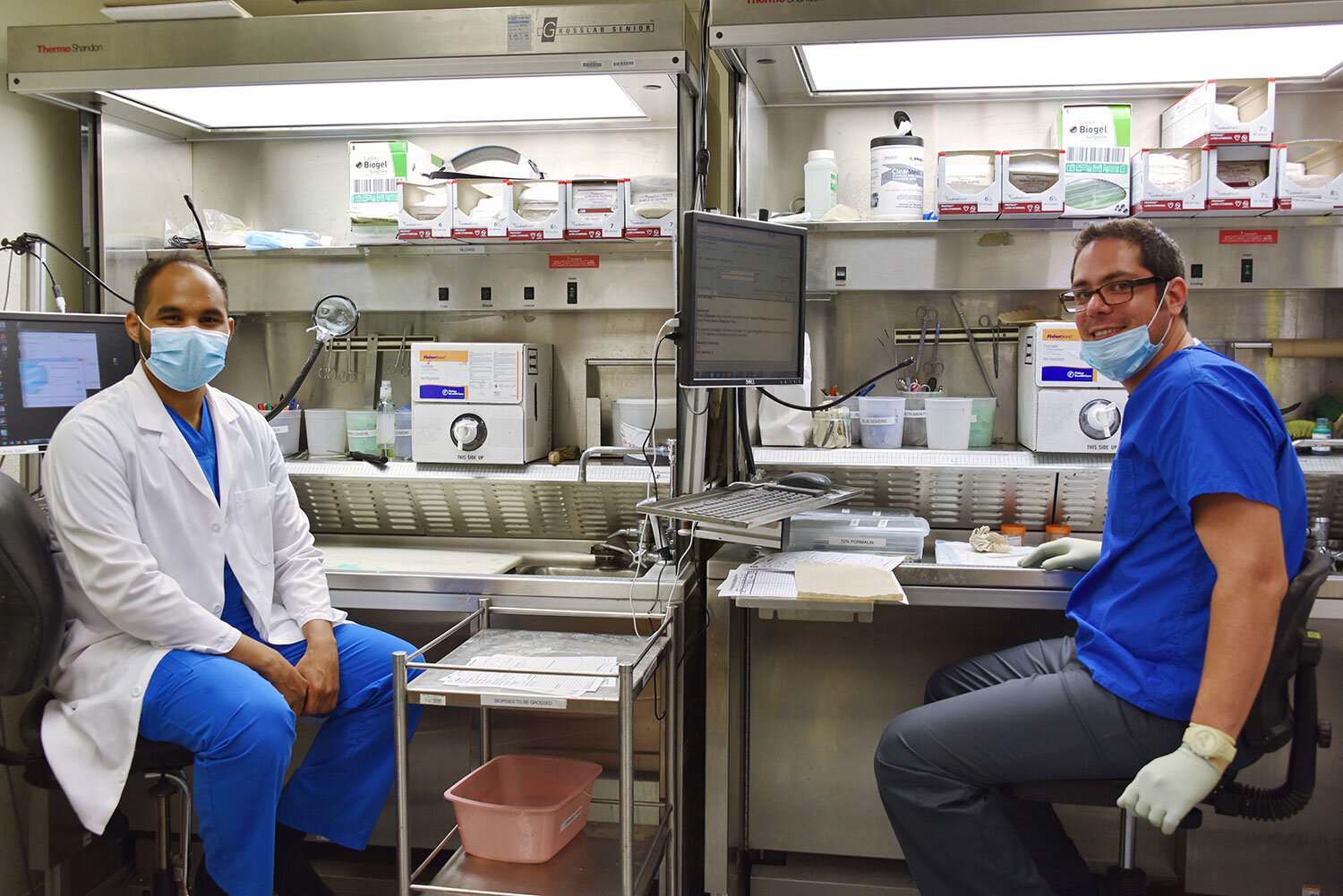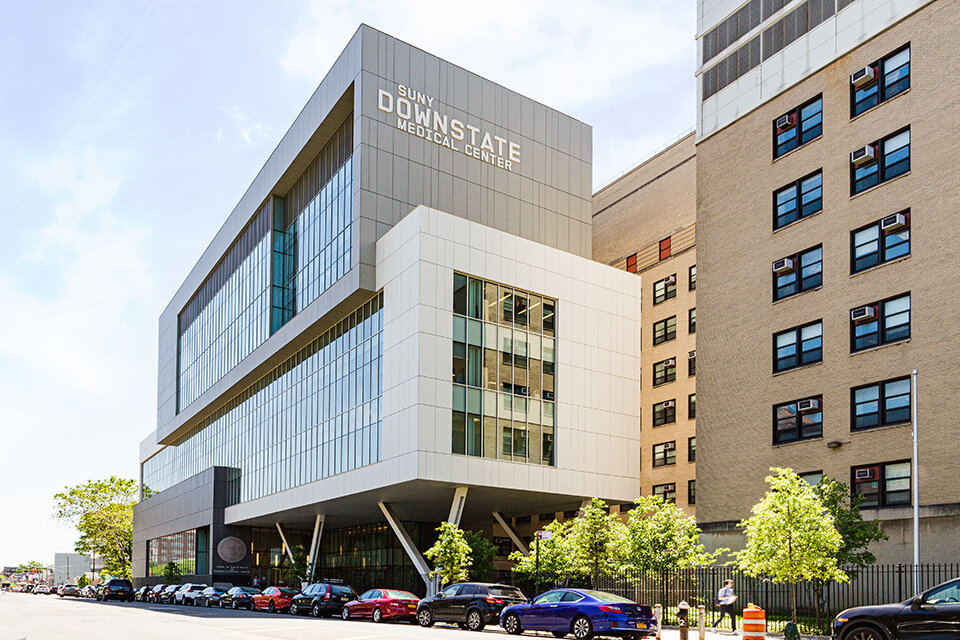
About the Pathology Residency Program
About the Pathology Residency Program
SUNY Downstate’s Pathology residency program is resident-focused, meaning that residency education is a true priority for our faculty. Our faculty get to know each resident well and nurture their development.
We have faculty in most subspecialty areas of pathology including Blood Banking/Transfusion Medicine, Chemical Pathology, Cytopathology, Dermatopathology, Forensic Pathology, Hematopathology, Medical Microbiology, Molecular Genetic Pathology, Neuropathology, and Perinatal Pathology.
Our residents also learn from experts during rotations at Ackerman Academy of Dermatopathology, the Brooklyn Office of the Chief Medical Examiner, and Columbia University Medical Center (for Molecular Pathology and Cytogenetics). Elective rotations offering opportunity for more in-depth training and/or clinical or basic research are available.
Objectives & Curriculum
The main objective of our program is to train well-rounded and competent physicians from diverse backgrounds who will smoothly transition to the independent practice of Anatomic and Clinical Pathology in a wide variety of settings including academic medical centers, community hospitals, and referral laboratories. Residents are expected to develop knowledge, skills, and aptitudes consistent with the six ACGME General Competencies and the corresponding Pathology Milestones.
We have a highly organized didactic curriculum which includes a mix of active learning sessions, unknown slides, faculty lectures and resident presentations. A regular scheduling of guest and voluntary faculty speakers creates an even richer learning environment. Resident participation in regional and national pathology meetings is financially supported for the presentation of original scholarship. The diverse array of clinical material is ideal for case studies and clinical research. In addition, residents may work in basic science laboratories. Investigators within the department have active research programs in infrared spectroscopic imaging and diffuse optical tomography; memory, learning and neurodegenerative disorders such as Alzheimer’s disease; cancer-related peptides and therapeutics; and immunologic aspects of asthma and HIV infection.
Appointments & Benefits
In 2025-2026, the program has positions for 22 pathology residents. Residents may choose a combined 4-year AP/CP, 3-year AP only or 3-year CP only program.
PGY-1 residents will receive a stipend of approximately $74,041. Residents are provided with professional liability, medical care and hospitalization insurance, dental insurance, meals, books, funding to present original scholarship at regional and national meetings and four weeks each of vacation annually.
AP/CP Training Track
In addition to the rotation requirements, all combined anatomic & clinical and anatomic only trainees must successfully complete 30 autopsies in accordance with the ACGME’s autopsy policies by the time of graduation.
What our residents think
Hear more about being a SUNY Downstate Pathology resident straight from our current residents’ mouths below and subscribe to our YouTube Channel for more.
Where we rotate
Trainees are exposed to an exciting mix of case material in our affiliated hospitals: University Hospital of Brooklyn, Kings County Hospital Center, Maimonides Medical Center, Columbia University Medical Center, Memorial Sloan Kettering Cancer Center, and the Veterans Affairs New York Harbor Healthcare System - Brooklyn and Manhattan campuses.






